Samsung Galaxy Note 10 Plus one year later: Is it still worth buying?
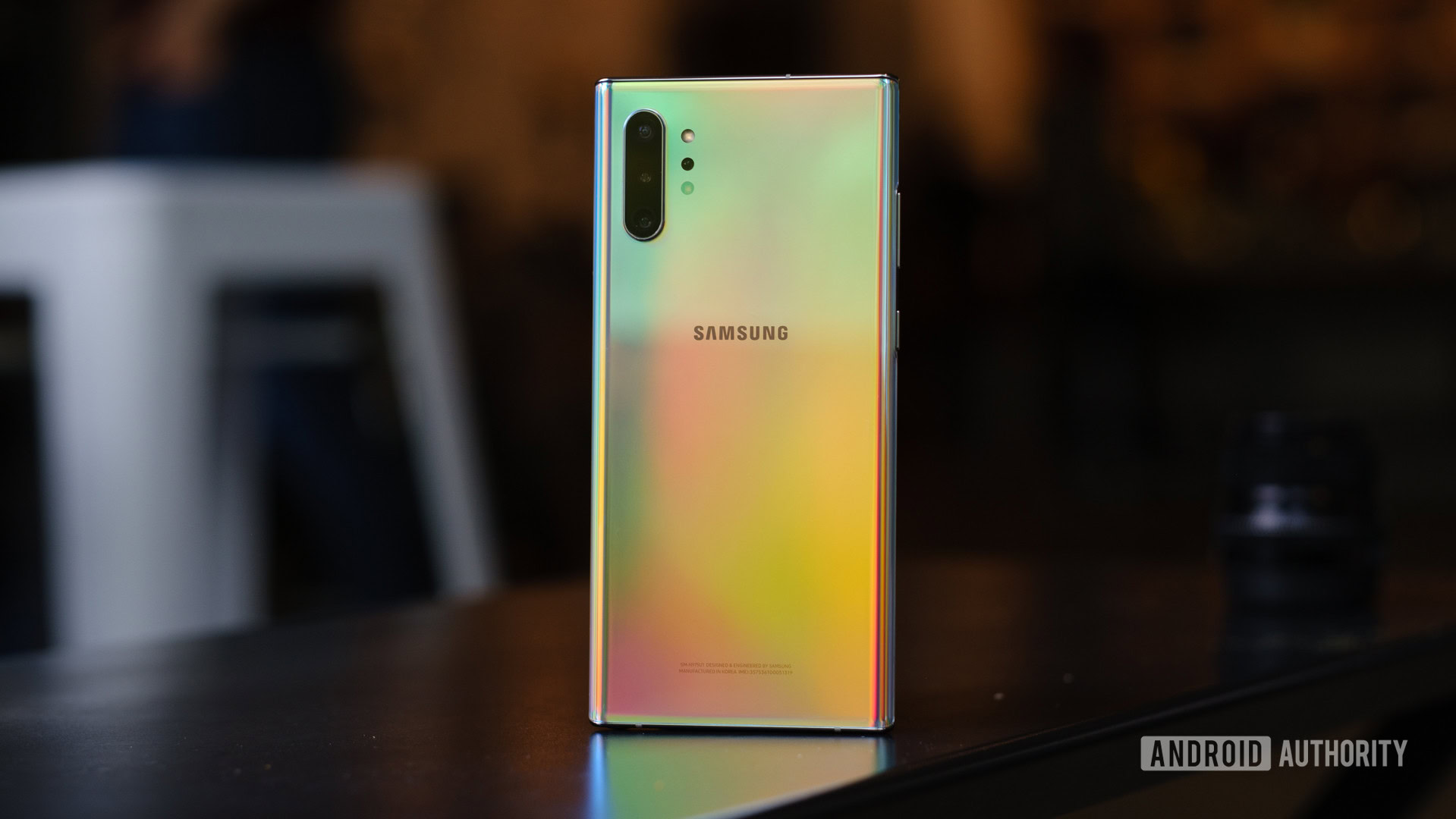
The Samsung Galaxy Note 10 Plus
Every year, Samsung launches a new entry in its ultra-premium Note line. In 2019, though, Samsung upended its own formula and released two devices in the Note line: the Samsung Galaxy Note 10 along with the Samsung Galaxy Note 10 Plus. The Plus variant is physically larger with more features, better specs, and a higher price.
We’re only a few days away from the launch of the 2020 iteration of Samsung’s premier phone line. This got us thinking about how the Note 10 Plus has held up over the past year. That’s exactly what this Samsung Galaxy Note 10 Plus long-term review is going to determine!
We’re going to talk about the highlights of the Note 10 Plus that have aged well over the past 12 months. We’re also going to dig in and discuss the issues one might face if they bought this phone in 2020. Ultimately, we’re going to answer the big question: would it still be a good choice to buy the Note 10 Plus today?
Samsung Galaxy Note 10 Plus
$1,099.00 at Amazon
About this article: I used a Samsung Galaxy Note 10 Plus exclusively as my daily driver over a period of five days. I used the Aura Glow model with 12GB of RAM and 256GB of storage. It was running One UI version 2.1, based on Android 10.
Mục Lục
Samsung Galaxy Note 10 Plus review recap
It’s hard to believe it was a year ago that we first reviewed the Samsung Galaxy Note 10 Plus. Why not refresh your memory of what we said then by checking out the video above or hitting up the written review.
How does the 2019 hardware compare to 2020 hardware?
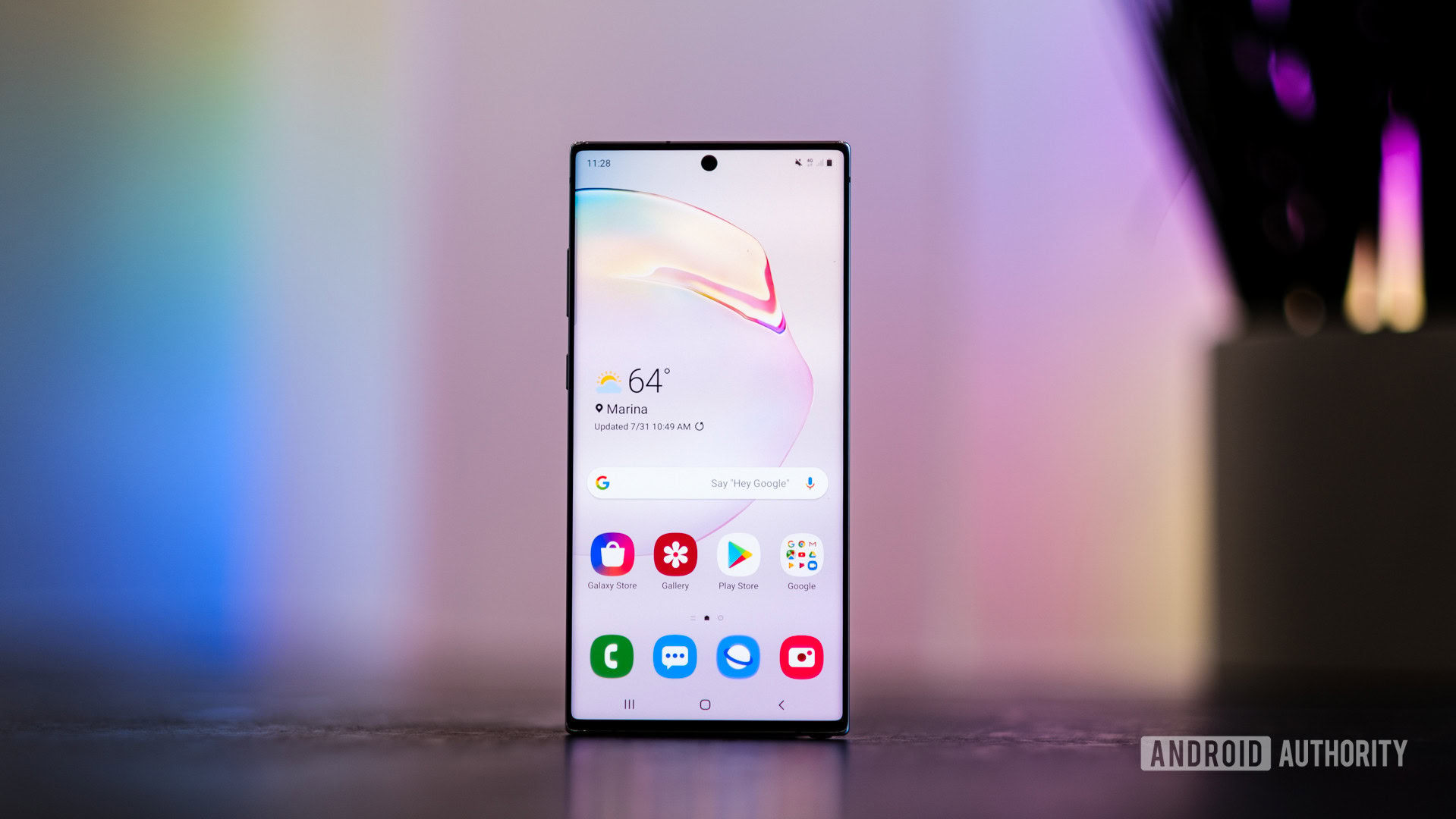
When it comes to raw specs, the Samsung Galaxy Note 10 Plus could still easily go head-to-head with any 2020 flagship. Sure, the Note 10 Plus doesn’t have the mighty Snapdragon 865 processor (nor even the Snapdragon 855 Plus), but the Snapdragon 855 is still a very capable chipset. In my five days with the phone, there wasn’t one moment where I felt things were slow or laggy.
The 12GB of RAM obviously helped out quite a bit with this as did the UFS 3.0 storage. The point is that anyone who would hold back on getting a Samsung Galaxy Note 10 Plus because the processor isn’t an SD865 would just be silly.
The Note 10 Plus’ Snapdragon 855 still flies.
Battery life was also terrific during my time with the device. I’m not going out nearly as much as I would have a year ago due to the COVID-19 pandemic, so I tested out how the device would do if I simply turned off Wi-Fi at home all day. Doing this wasn’t a problem as I still had about 60% battery by the time I went to bed. Of course, this doesn’t fully replicate a battery draining day walking around New York City, but the 4,300mAh battery didn’t let me down.
As a quick rundown, the Galaxy Note 10 Plus has some other notable specs that still shine today. These are namely a minimum of 256GB of internal storage, microSD card support, the option to charge at 45W speeds (with compatible adapter), wireless charging, and an IP68 rating.
The bottom line is that the Samsung Galaxy Note 10 Plus is still a specs beast even one year later.
The Note 10 Plus is still as pretty as can be
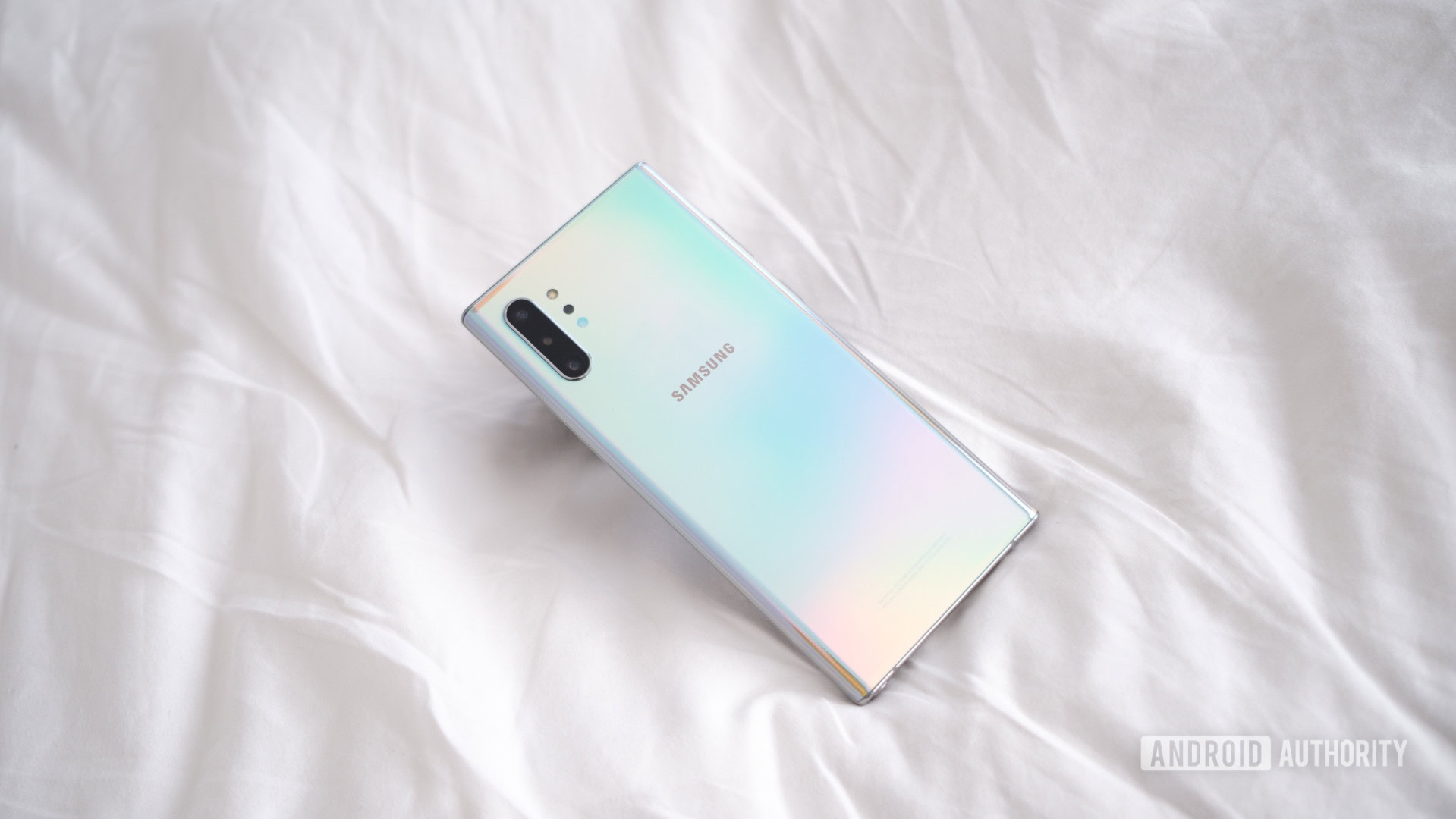
In our original review of the Samsung Galaxy Note 10 Plus, we talked about how Samsung clearly abandoned some power-user features in exchange for a stunning design. Let me tell you, the Galaxy Note 10 Plus is still a stunner, especially the Aura Glow model I was using.
It’s so pretty that I went without a case for the whole five days. I even found myself putting the phone on my desk face-down just because it looked cool to have such a gorgeous thing near my keyboard.
The Galaxy Note 10 Plus might be one of the best-looking phones I’ve ever used.
The iconic squared-off design aesthetic of the Note series carries over here, giving the Note 10 Plus a chunky, almost industrial feel in the hand. I’ll admit that holding the phone in one hand for long stretches of time wasn’t as comfortable as using a phone with curvy edges. It wasn’t horrible, but worth noting.
Related: The best Samsung Galaxy Note 10 Plus cases
One of the things that was a bit surprising for me was realizing how small the rear camera bump is on the Galaxy Note 10 Plus. After using the Samsung Galaxy S20 Ultra for a while, I assumed the rear camera module on Note 10 Plus was also pretty thick. However, that’s not true as the Galaxy Note 10 Plus lays nearly flat with very minimal wobble. Obviously, if you put a case on it you might not notice anyway, but I was surprised at how nice it was to not have something protruding so far out of the back. From what we’ve seen so far of the Samsung Galaxy Note 20 Ultra, that’s likely to not be the case.
Regardless, if you want your phone to be a fashion statement, there aren’t many that have been released over the past year that can compete with this one in the looks department.
The cameras get the job done
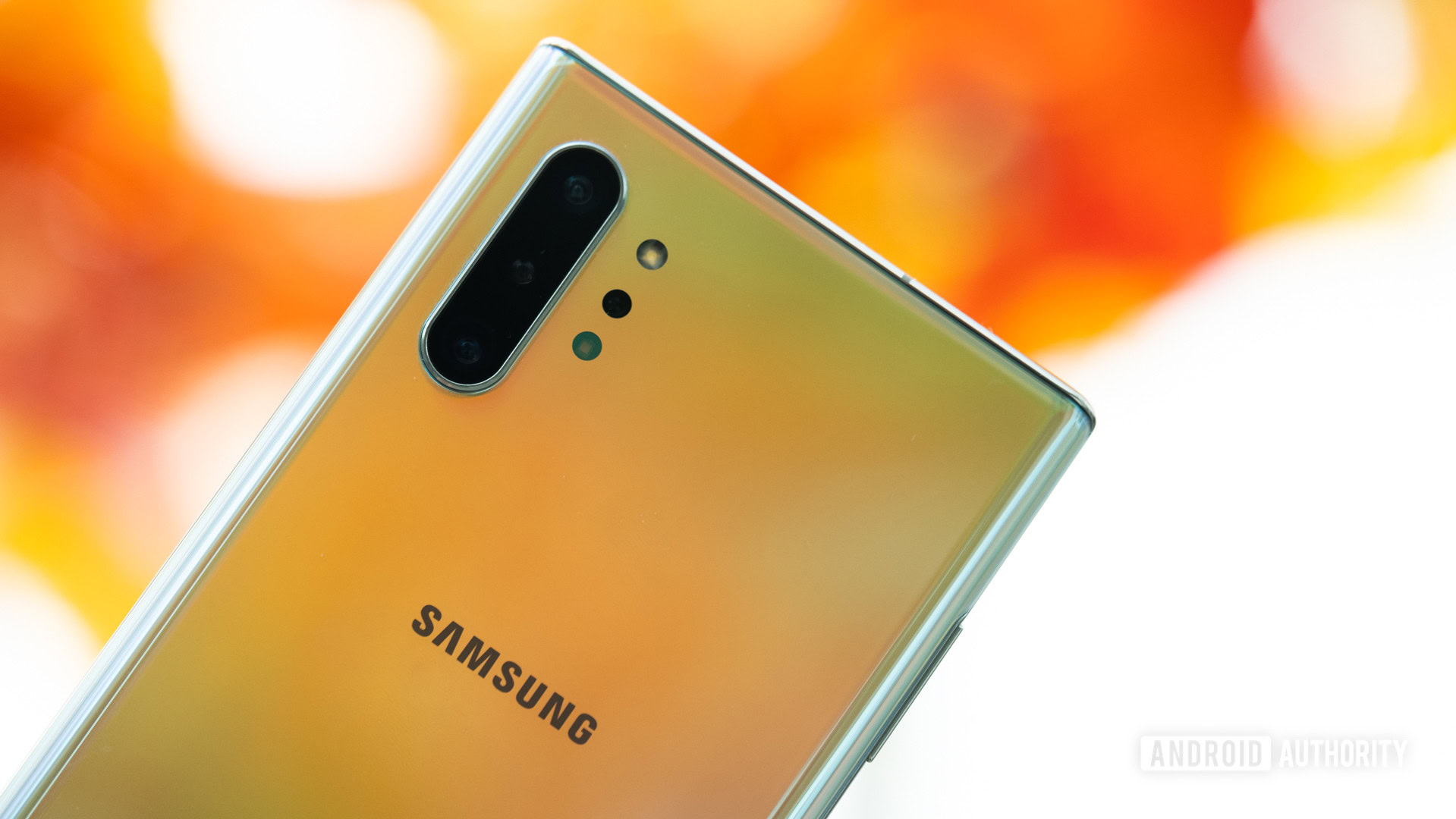
The Samsung Galaxy Note 10 Plus has a better camera system than the vanilla Note 10, and has more to offer than most devices in the Galaxy S10 series. However, I feel like the camera system is never a true focus of the Note series. Samsung usually pushes the productivity aspects, which makes sense.
Related: The Samsung Galaxy Note 10 Plus camera review: Should be better
That being said, the camera system on the Note 10 Plus is great at nailing the basics. I pitted it — pretty unfairly — against the Galaxy S20 Ultra for this review. While the S20 Ultra delivered better shots, the Note 10 Plus held its own to the point where I would feel fine trusting it as my daily shooter in 2020. Check out a few example images below.
Photography is very subjective, and I’m definitely no pro photographer. However, I think the Galaxy Note 10 Plus has a great camera that’s reliable, fast, and semi-accurate, but doesn’t really excel at anything. That’s not a detraction, it’s just what you need: nothing more, nothing less.
It should be noted that since the launch of the Galaxy Note 10 series, Samsung has pushed a few camera updates. For example, the Single Take feature that debuted with the Galaxy S20 series is now available on the Galaxy Note 10 series. Obviously, Samsung can’t send a software update to change the hardware, but there are constant improvements happening.
As a side note, I especially appreciated being able to use the S Pen to take pictures and start/stop video recording. This came in real handy when shooting my daily Instagram Story for the Android Authority account.
While there were objectively better cameras in the 2019 smartphone world — especially when it comes to low-light shots — I doubt general users would be disappointed with the Samsung Galaxy Note 10 Plus. It still shines.
The Samsung Galaxy Note 10 Plus gets you to work
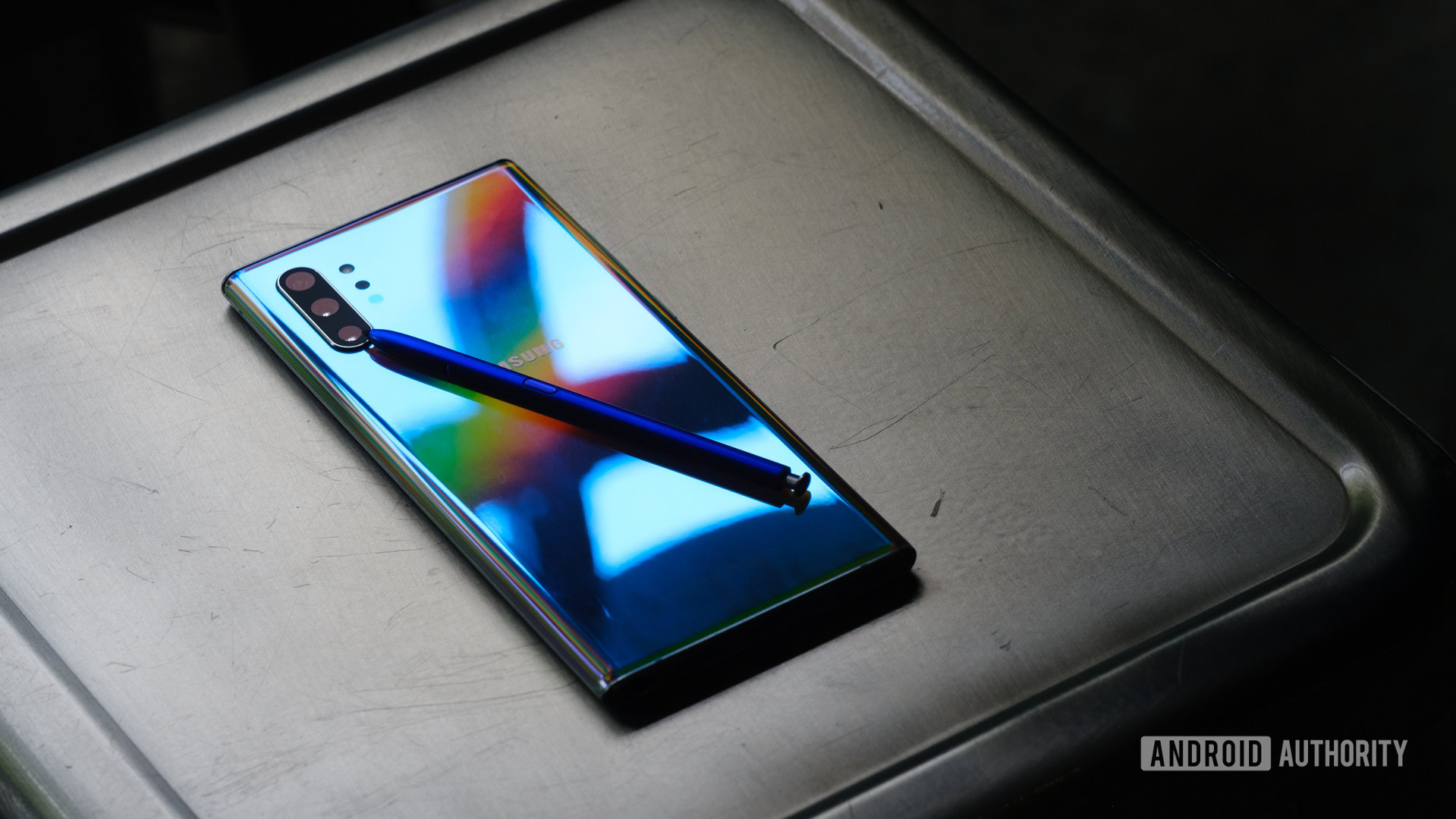
Productivity has always been the main selling point for the Note series, and the Note 10 Plus is no exception. There are lots of features here that I had no use for such as the S Pen Air Gestures, which felt gimmicky to me. But I still found plenty to love. I think Samsung banks on that as it helps you find what makes the Note work for you.
For me, the best thing about the Samsung Galaxy Note 10 Plus was its seamless integration with Windows 10. Using the Your Phone app on my desktop, I was able to work with the Note 10 Plus all day without needing to lift it off the desk. I swiped away notifications, answered texts, and even opened up a few apps here and there by using my mouse. It was really convenient, and something that only high-end Samsung devices can fully utilize at the moment.
The Note 10 Plus is (almost) powerful enough to be my main work machine when paired with the NexDock 2 laptop shell.
I also used the Dex features built-in to the Galaxy Note 10 Plus in tandem with my NexDock 2. This gave me a laptop experience with the Note 10 Plus as the “brains” of the operation. Everything went great and most of my day-to-day work tasks worked just fine. There were a few complaints with this such as the Asana Android app not working nearly as well as the desktop browser app, but that’s not a dig on the Note 10 Plus or Dex.
I’m not sure I would ever fully dump my Windows laptop and use Dex full time, but it’s starting to seem like that could be something I might realistically consider in the future. It’s not much different from using a Chromebook at this point.
Unfortunately, the Note 10 Plus is missing some stuff
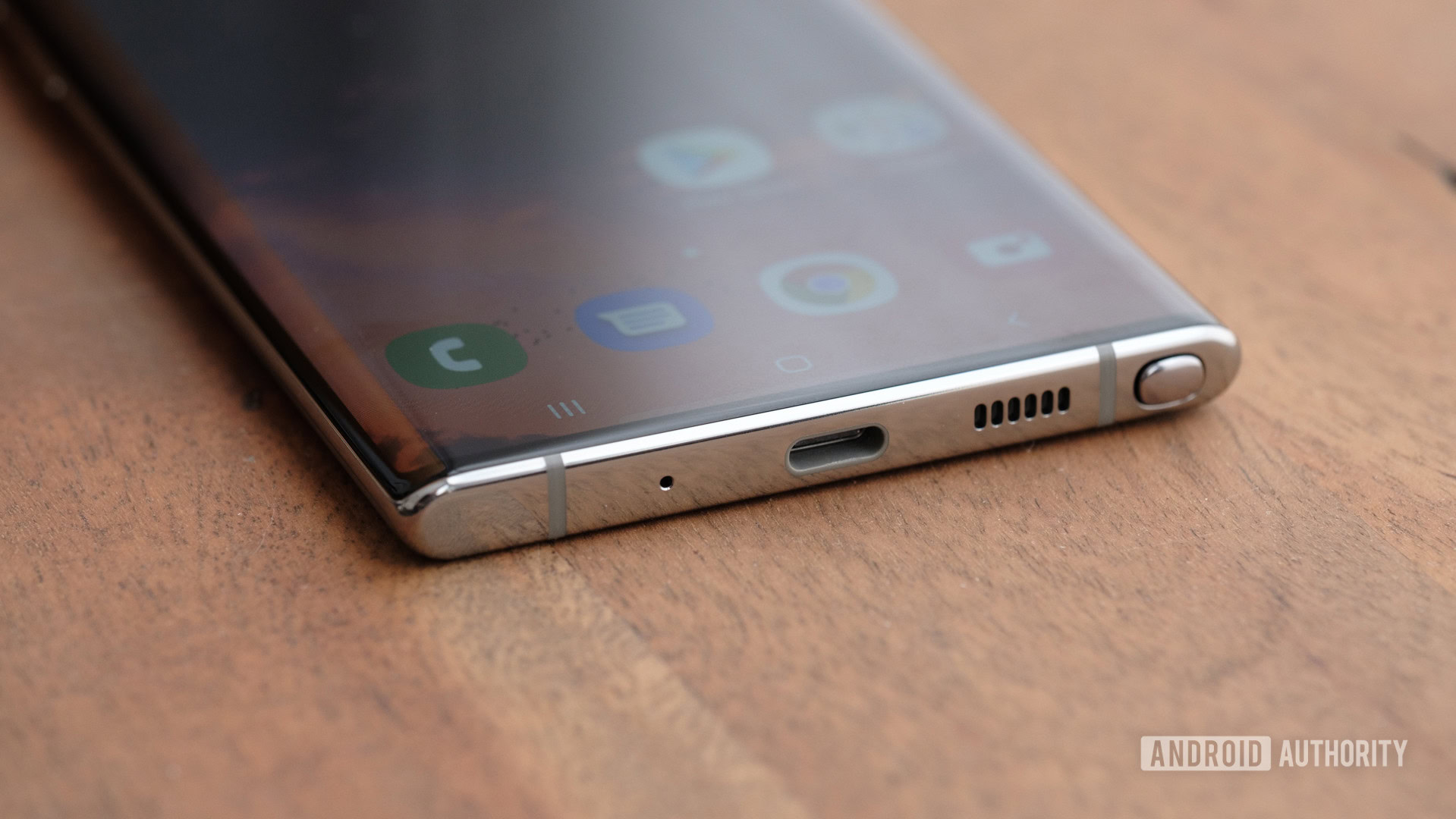
The Galaxy Note 10 Plus was one of the best, most powerful phones of 2019. But this is a Samsung Galaxy Note 10 Plus long-term review for 2020, and things have changed a bit. There are some aspects of 2020 flagships that we want now and the Galaxy Note 10 Plus simply doesn’t deliver.
There are also a few things about the Note 10 Plus that I wished were different during my time with it. In addition, there were some personal preferences that would make me hesitate in committing to a Note 10 Plus full time.
Here’s where I feel the Samsung Galaxy Note 10 Plus falls short:
- No 90Hz/120Hz display refresh rate: Even in 2019 the high refresh rate display was a trend, but the Galaxy Note 10 series skipped it. The display just isn’t as nice as recent flagships because of this, and it definitely makes the Note 10 Plus feel a bit behind the curve.
- No headphone jack: This has been beaten into the ground by now. However, the Note 10 series is the first in the line to not have the 3.5mm port, so it bears repeating here. Honestly, a phone geared towards power users without a headphone jack still feels as wrong today as it did a year ago.
- No 5G support: I’ll be honest, I have a 5G-capable phone connected to 5G service, and I still don’t care about 5G. I simply don’t have anything in my life that necessitates 5G, so it becomes an afterthought. That being said, this will probably change over the next year or two, and the standard Samsung Galaxy Note 10 Plus not having 5G support is a notable omission. There is a version with 5G — predictably called the Galaxy Note 10 Plus 5G — but it costs an extra $200, which is one heck of a premium to pay for a feature that is now standard for all new top-end phones.
- Misplaced hardware buttons: Samsung made the mistake of moving all the hardware buttons (the volume rocker and side key) to the left side of the Note 10 Plus. I thought I would get used to this but even on my final day with the phone, I still tried to shut it off by hitting the empty right side. The news that we can expect the Note 20 series to move the buttons back to their usual positions tells you everything you need to know about this change.
- Poor fingerprint sensor: Samsung’s ultrasonic fingerprint sensor is objectively worse than the light-based ones used on every other phone with an in-display sensor. It’s not horrible on the Note 10 Plus, but not as good as the one on my OnePlus 7 Pro. This wasn’t a deal-breaker though. It still functioned well enough most of the time.
- One UI still bloated: This is a personal preference, but One UI is just too over-the-top for my taste. I appreciate the fact that I can do pretty much anything with a flagship Samsung phone with its limitless options and settings tweaks. However, it just felt like too much most of the time, and I longed for the simplicity of Oxygen OS or the Pixel UI several times during the week.
Galaxy Note 10 Plus vs Galaxy Note 20 series
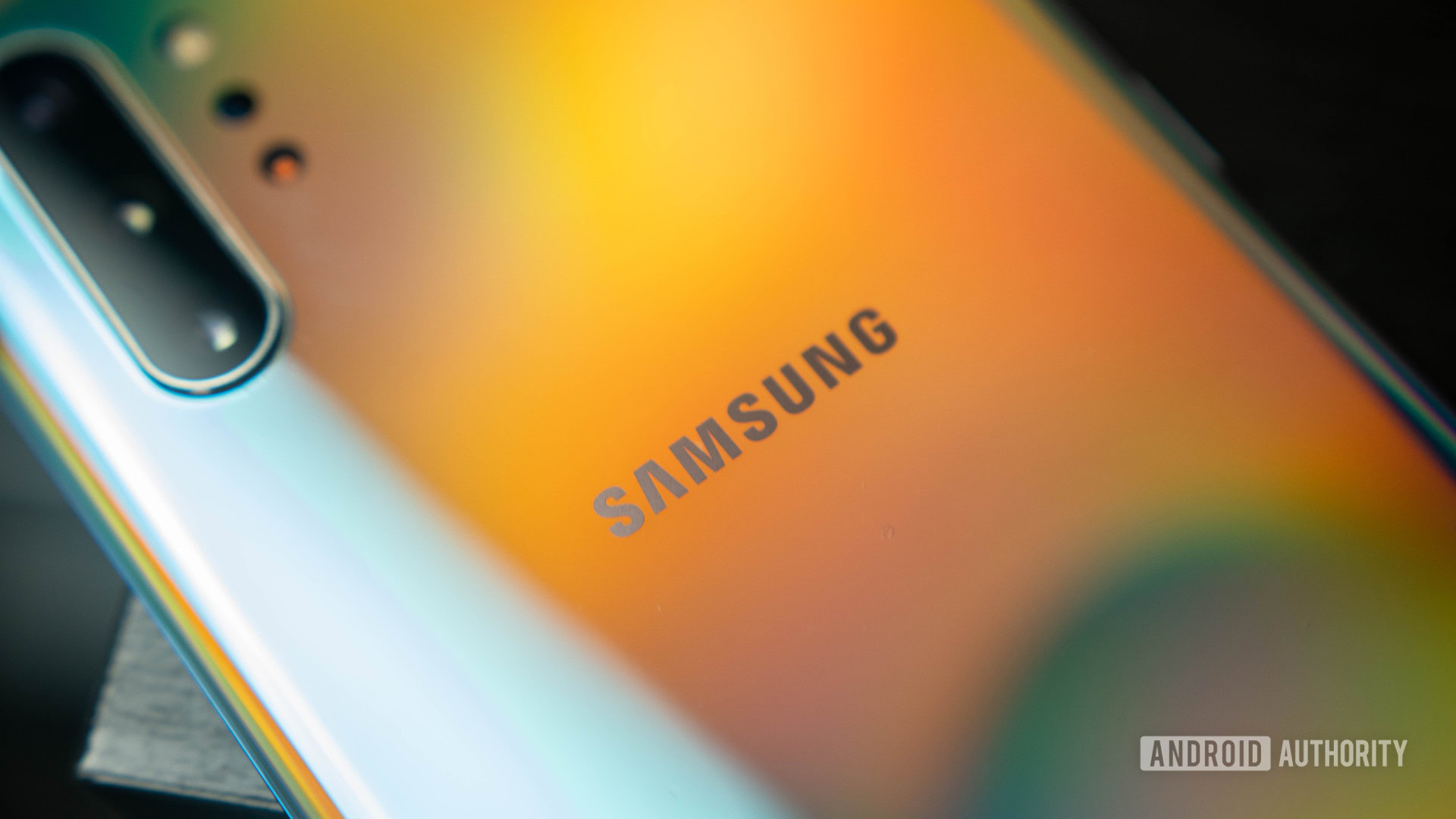
As of today, Samsung has yet to fully reveal the Samsung Galaxy Note 20 lineup. However, we have seen enough rumors now to know what to expect. How will the Note 20 stack up against last year’s Samsung Galaxy Note 10 Plus?
So far, it appears Samsung could be doubling down in a lot of ways when it comes to the Note 20 family. It appears that the company is once again going to put a heavy focus on design rather than productivity with the new Notes. It also seems like the specs and features will go through the roof, especially with the rumored Galaxy Note 20 Ultra. As one would expect, pricing is also expected to go up considerably.
Related: The Samsung Galaxy Note 20 series: What you need to know
The real question is whether or not these upgrades and price increases will be worth it. While the Note 20 series will all likely be 5G-capable phones, is that something you need? The Snapdragon 865 is objectively better than last year’s Snapdragon 855, but will you notice that in your day-to-day usage? Will the expected camera upgrades be worth the extra hundreds of dollars you’ll likely pay for a Note 20 as compared to an older Note?
We don’t know the answers as of right now, but a “gotta have it” feature on the Note 20 series hasn’t leaked yet. Samsung might have some surprises for us, but unless you’re obsessed with raw power and specs sheets, there might not be too much to talk about.
Samsung Galaxy Note 10 Plus long-term review: The verdict
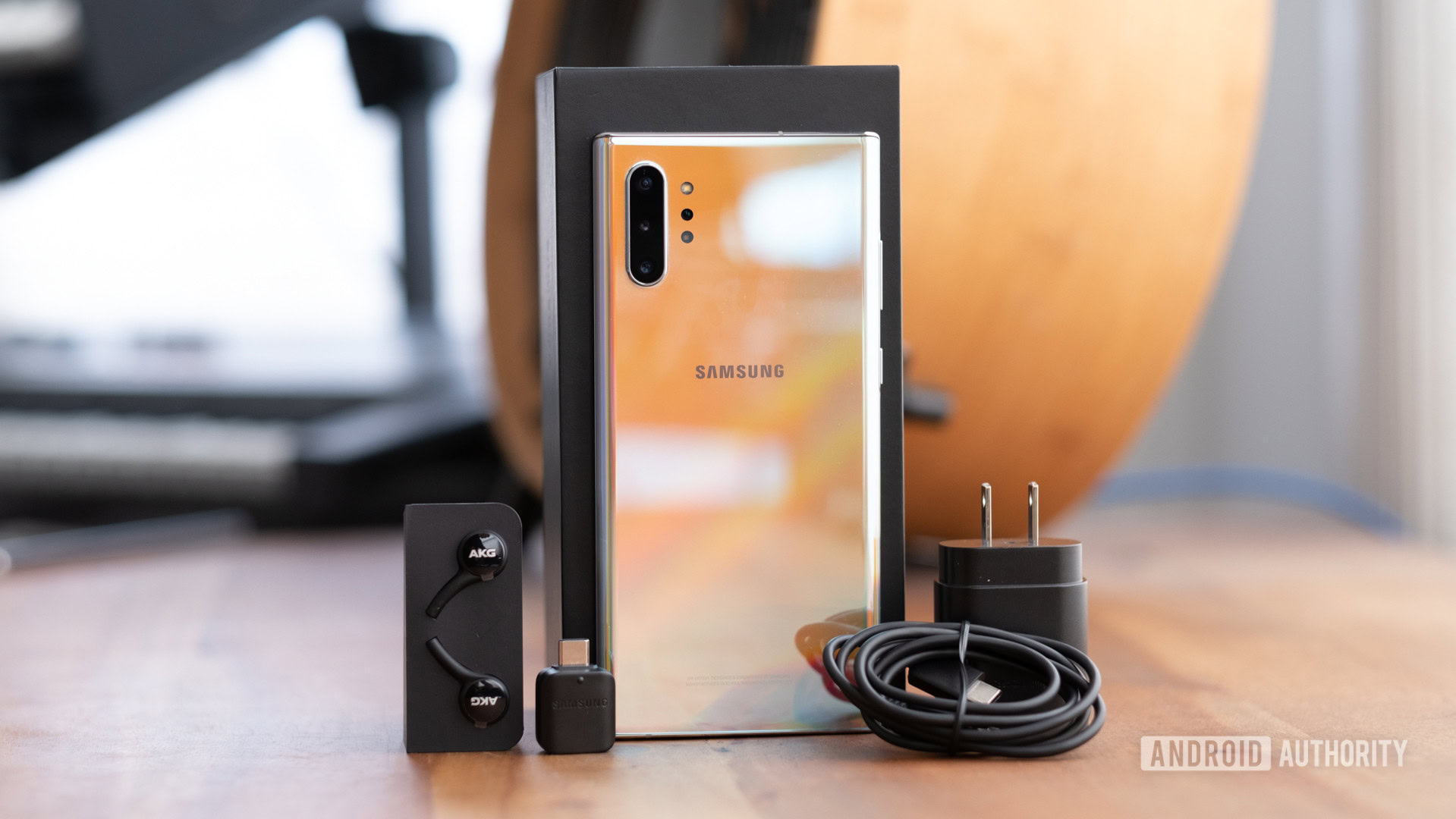
When the Samsung Galaxy Note 10 Plus launched, its $1,099 entry-level price was painful to read. While it certainly wasn’t the most expensive smartphone of 2019, it pushed the boundaries of what general users would comfortably pay.
However, the device’s features and design were of a high caliber, and Note devotees are used to spending big bucks on their phones. At the time, we felt comfortable recommending that people buy a Note 10 Plus as long as the overall value for cash wasn’t a chief concern.
Is the Note 10 Plus worth $1,100 in 2020? Nope, but that shouldn’t stop you from considering it.
Now, it’s easy to find a Galaxy Note 10 Plus for much less money. In the coming weeks and months, it’ll likely become even easier as Samsung will probably drop the pricing of this soon-to-be outdated model. That’ll up the value for cash ratio of the Note 10 Plus and make it a no-brainer.
Of course, the only caveats to buying a Note 10 Plus in 2020 will be the things the phone simply can’t do. For example, it won’t give you a high refresh rate display, 5G support (unless you pay for the more expensive version), a headphone jack, or a bleeding-edge camera system. However, if you can look past these missing features and find it at a nice discount, the Galaxy Note 10 Plus would still make a terrific daily driver.

Samsung Galaxy Note 10 Plus
The all-around choice
The Samsung Galaxy Note 10 Plus truly has it all: great specs, a huge screen, and a great triple camera setup. Plus, the included S-Pen stylus is perfect for mobile games that require precision tapping or swiping.
$1,099.00 at Amazon















![Toni Kroos là ai? [ sự thật về tiểu sử đầy đủ Toni Kroos ]](https://evbn.org/wp-content/uploads/New-Project-6635-1671934592.jpg)


